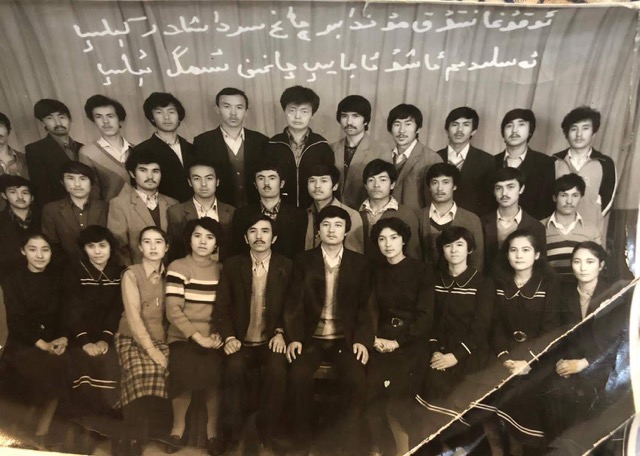 Uyghur
Uyghur
World Uyghur Congress marks 1988 student's protest
The World Uyghur Congress (WUC) commemorates the 36th anniversary of the 1988 pro-democracy Uyghur student protest in Urumchi, East Turkistan.
June 15, 1988 marks one of the most significant large-scale public expressions of discontent against the Chinese government’s discriminatory policies against Uyghurs.
“Thousands of Uyghur students courageously raised their voices against the discriminatory policies of the Chinese government, as we understood the significance of this momentum,” said WUC President, Dolkun Isa.
“The entire system operated on discriminatory policies, which ultimately lead to the ongoing genocide in East Turkistan.”
The Uyghur students protest movement of the 1980s aimed to educate Uyghur students across the country about their rights in accordance with the Constitution.
It was led by the current WUC President, student leaders Dolkun Isa, Waris Ababekir and Erkin Tursun.
The 1988 protests were preceded by large student protests in 1985, where thousands of Uyghur students took to the streets over discriminatory education policies, birth control policies, the effects of nuclear testing in the Lop Nur region, and the lack of genuine representation in government and employment opportunities.
On June 15, 1988, Isa and Erkin Tursun, representing Uyghur students, engaged in a five-hour intense debate with high-level Chinese government officials about these discriminatory policies.
After failing to find a compromise, the two student leaders returned and mobilised thousands of students in the streets of Urumchi together with prominent Uyghur activist and Isa’s classmate, Waris Ababekri.
Although the student democracy protests in East Turkistan were ultimately stamped out by the Chinese government, these demonstrations planted the seeds for the future of the Uyghur human rights movement.
The demonstrations furthermore proved to be a pivotal moment in the lives of Dolkun Isa, Waris Ababekri and many other Uyghur activists that set them down the path of human rights advocacy.
In the aftermath of the 1988 protests, Isa and Ababekir were expelled from the university and Isa was forced to flee the country in 1994. He later sought asylum in Germany, where he has continued to advocate for Uyghur rights.
Erkin Tursun later became a reputable TV producer and journalist, who worked for Ili Station for nearly 30 years.
On April 21, 2021, it was confirmed that he was serving a 20-year sentence for ”inciting ethnic hatred, discrimination and covering up crimes”, according to Beijing authorities.
Waris Ababekri was reportedly sent to a camp at the beginning of January 2019 and released in mid-November. He passed away a week after his release, on 24 November 2019.
On this important commemorative day for the Uyghur people, the World Uyghur Congress reiterates its call to the international community to hold the Chinese government accountable for its continuous attack on Uyghur human rights, freedom, and democracy.
In the years since 1988 the repression of Uyghurs has escalated to a genocide and crimes against humanity.
Especially in light of Xi Jinping’s intent to continue repressive policies, and world leaders meeting with Chinese officials while consistently prioritising business over human rights, it is even more important to highlight the longstanding human rights abuses against Uyghurs.
Support Our Journalism
We cannot do without you.. your contribution supports unbiased journalism
IBNS is not driven by any ism- not wokeism, not racism, not skewed secularism, not hyper right-wing or left liberal ideals, nor by any hardline religious beliefs or hyper nationalism. We want to serve you good old objective news, as they are. We do not judge or preach. We let people decide for themselves. We only try to present factual and well-sourced news.





